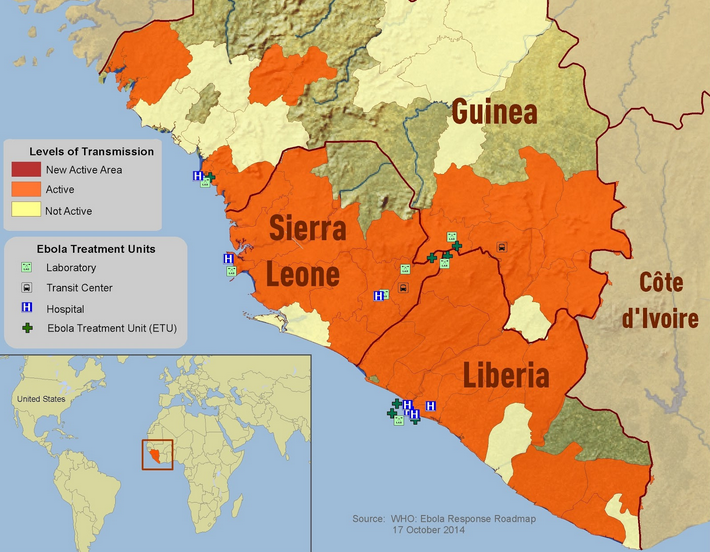With the Center for Disease Control (CDC) calling the 2014 Ebola epidemic the largest in history, many students are starting to wonder exactly how serious this virus is and what would happen in the case that Ebola begins to spread throughout the United States.
In response to these concerns, both the DU Health and Counseling Center (HCC) and the CDC have plans set in place to prevent an outbreak from happening.
“The University of Denver Health and Counseling Center continues to closely monitor the recent developments regarding Ebola hemorrhagic fever in the United States and worldwide,” as reported by the DU Universitywide News Website.
“The HCC is closely working with the Colorado Department of Health to ensure everything possible is being done to prevent the spread of Ebola. Students who either call or schedule an appointment with the HCC and describe flu-like symptoms are asked about their recent travels in order to determine if having Ebola is a possibility,” reported Alan Kent, the Executive Director of the Health and Counseling Center.
“The risk of Ebola at DU is very low, but we are trying to be proactive as possible,” said Kent. “Our medical director, Dr. David Odell, monitors developments with the CDC about Ebola on a daily basis. Dr. Odell has also created a general information letter, giving students returning from studying abroad general guidance about Ebola.”
The Ebola virus was first discovered in 1976 in the Republic of Zaire, which is now known as the Democratic Republic of the Congo. In the first recorded Ebola outbreak, there were 318 cases of the virus.
Since then, the CDC has reported 34 outbreaks of Ebola and a total of 2360 cases. In the 2014 Ebola outbreak alone, there have been over 10,000 reported cases of the Ebola Virus Disease throughout multiple countries.
The disease has ravaged the region of West Africa, but has also affected countries like Spain and the United States. So far, the United States has reported four cases of the Ebola Virus Disease.
“[The] CDC and partners are taking precautions to prevent the further spread of Ebola within the United States. CDC has also deployed teams of public health experts to West Africa and will continue to send experts to the affected countries,” reported the CDC website.
In an effort to prevent the spread of Ebola, the CDC has issued several “Avoid Nonessential Travel” notices for West Africa, in which the department recommends that people do not travel to countries in West Africa unless it is necessary.
The CDC also released information for college students who are planning on or are currently Studying Abroad or are involved with a Foreign Exchange program.
“We advise that education-related travel to these countries be postponed until further notice,” the CDC wrote.
The CDC has also provided steps to prevent the spread of Ebola recommended for faculty and students returning to the United States.
Anyone looking for the most recent updates on the Ebola Virus Disease can visit the CDC website’s Ebola page or the Colorado Department of Health Ebola information page.
Information courtesy of cdc.gov and who.int.












